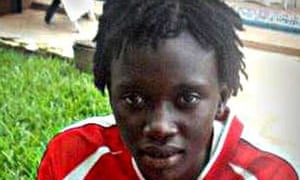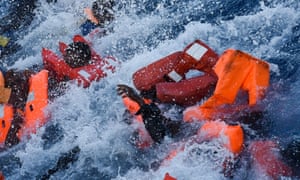Fatim Jawara, 19, drowned while trying to reach Lampedusa in Italy on one of two ships hit by a sudden storm
By Jason Burke

The teenage goalkeeper of the Gambia’s national women’s football team who drowned in the Mediterranean while trying to reach Italy told her family shortly before she died that she wanted to “follow her destiny” and play for a major European club “whatever the risks”.
Fatim Jawara, 19, was on board a boat that sank late last week when hit by a sudden storm during the crossing from Libya to Italy.
In one of her last conversations with her family, Jawara rejected their desperate appeals to return to their home on Gambia’s Atlantic coast, a close friend said.
“They spoke to her from the middle of the desert, all the time as she travelled. They were begging her to abandon the journey, but she said she wanted to go on and follow her destiny,” said Sainey Sissoho, a former team-mate.
The United Nations said on Thursday that at least 239 migrants were believed to have died in two shipwrecks off Libya in recent days.
Carlotta Sami, a spokeswoman for the UN refugee agency UNHCR, said reports of the tragedy had been confirmed by two survivors brought ashore on the Italian island of Lampedusa.
More than 3,700 migrants have died in the Mediterranean so far this year, according to the UN.

People panic as they fall in the water during a rescue operation off the Libyan coast on Thursday. Photograph: Andreas Solaro/AFP/Getty Images
Jawara, who made her debut for the national team a year ago in a friendly against a team from Glasgow, is believed to have been on one of the two ships referred to by the UNHCR.
“Her death is untimely, but we will remember her for her great performances on the pitch,” said Chorro Mbenga, who was the assistant coach of the national under-17s side in which Jawara made her breakthrough, and knew her well.
Officials in Gambia said Jawara left her home in the crowded city of Serrekunda in September to cross the Sahara and head for Libya, where most African migrants begin the sea crossing to Europe. She then spent at least three weeks waiting for the crossing in a “camp” run by traffickers either in Tripoli, the Libyan capital, or Misrata, the port, before embarking to Lampedusa.

Leave a Reply